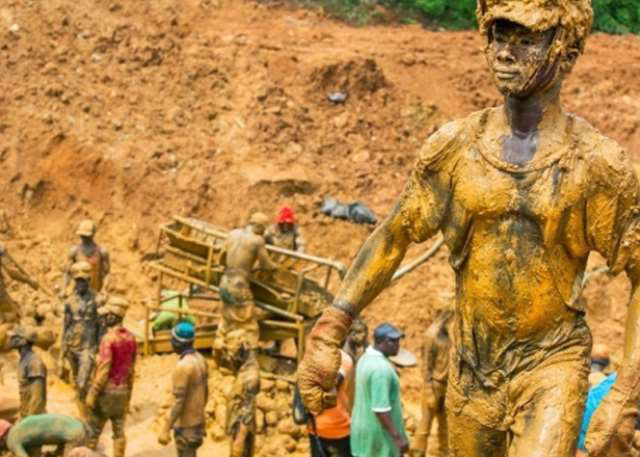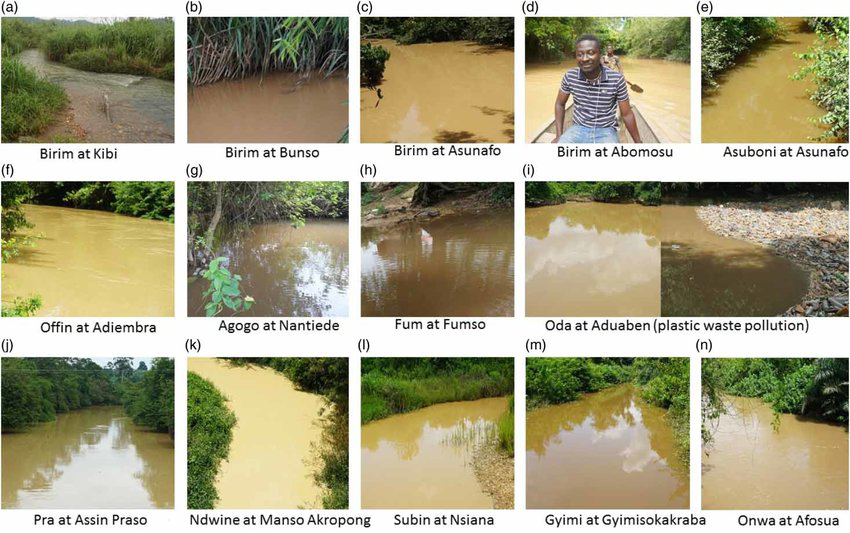Ghana, once hailed as the beacon of stability in West Africa, is now grappling with a crisis that threatens its environmental integrity and socio-economic fabric: illegal mining, commonly referred to as "Galamsey." This issue has spiraled to unprecedented levels, prompting discussions of a potential nationwide lockdown as the government scrambles to contain the fallout. This article explores the origins of illegal mining in Ghana, its impacts on the environment and communities, and the government's response as it weighs the necessity of extreme measures to combat this burgeoning threat.
The Rise of Illegal Mining in Ghana
Illegal mining in Ghana dates back several decades, but its scale has dramatically increased in recent years. Historically, Ghana was known for its rich gold deposits, attracting both foreign investment and artisanal miners. However, the influx of Chinese nationals and the availability of affordable technology have intensified the problem. Many local miners, driven by poverty and unemployment, turned to Galamsey as a means of survival.
The allure of quick riches has led to a surge in illegal operations across the country, particularly in regions like Ashanti, Eastern, and Western North. This unregulated mining not only bypasses governmental oversight but also undermines efforts to promote sustainable mining practices.
Environmental Consequences
The environmental degradation caused by illegal mining is staggering. Forests are cleared, rivers polluted, and landscapes permanently altered. The use of toxic chemicals such as mercury and cyanide in gold extraction poses severe risks to both human health and biodiversity.
Reports indicate that many water bodies, including the Ankobra and Pra rivers, have been contaminated, affecting millions who rely on these resources for drinking water and fishing.
The destruction of arable land also threatens food security, as local farmers find it increasingly difficult to cultivate crops in areas previously suitable for agriculture.
Socio-Economic Impacts
The illegal mining crisis is not only an environmental issue but also a socio-economic one. While some miners have found financial gain, the broader implications for communities are dire. The influx of miners leads to an increase in crime, human trafficking, and exploitation, particularly of vulnerable populations. Women and children are often drawn into the industry, sometimes coerced into dangerous work conditions.
Moreover, the rise in illegal mining has sparked conflicts between local communities, legitimate mining companies, and the government. Land disputes are common, with traditional landowners often finding themselves at odds with both miners and authorities trying to enforce regulations.
Government Response
The Ghanaian government has recognized the severity of the situation and has taken steps to address the crisis. In 2017, President Nana Akufo-Addo declared a ban on all forms of illegal mining, which led to a nationwide operation to dismantle illegal sites. However, the effectiveness of these measures has been called into question, as many operations have simply gone underground or moved to less accessible areas.
Despite these challenges, the government is now considering more drastic measures, including a nationwide lockdown to curtail illegal mining activities. This approach raises several questions regarding its feasibility, potential effectiveness, and the ramifications for local economies dependent on mining.
The Lockdown Debate
As discussions of a lockdown emerge, various stakeholders have weighed in on the issue. Proponents argue that a nationwide lockdown could provide a much-needed respite for the environment, allowing authorities to better enforce existing laws and dismantle illegal operations. It could also give communities time to explore alternative livelihoods, reducing dependency on mining.
Critics, however, warn that a lockdown could exacerbate the socio-economic conditions that led to illegal mining in the first place. For many, Galamsey is not merely an economic choice but a necessity. The lack of alternative employment opportunities means that a sudden cessation of mining activities could lead to increased poverty, crime, and social unrest.
Exploring Alternatives
Given the complexities surrounding the illegal mining crisis, it is crucial to explore alternative solutions that address both environmental and socio-economic concerns. These could include:
1. Community Engagement: Empowering local communities to participate in the management of natural resources can foster more sustainable practices. Education programs highlighting the long-term impacts of illegal mining could shift perspectives and promote alternative livelihoods.
2. Legalization and Regulation: Implementing a regulated framework for artisanal mining might provide a safer and more sustainable avenue for those involved in Galamsey. By legalizing small-scale mining operations, the government could ensure that environmental standards are met while providing miners with a legitimate means of income.
3. Economic Diversification: Developing alternative economic opportunities in mining communities is essential. Investments in agriculture, tourism, and education could help create sustainable jobs, reducing the reliance on illegal mining.
4. International Cooperation: Given the cross-border nature of illegal mining, international collaboration is crucial. Engaging with countries that have similar challenges can lead to shared strategies and resources to combat this issue.
The illegal mining crisis in Ghana poses a significant challenge that requires urgent attention and innovative solutions. As the government considers a nationwide lockdown, it must balance the need for environmental protection with the socio-economic realities faced by many Ghanaians. Rather than viewing Galamsey solely as a threat, it is imperative to recognize the underlying issues driving this crisis and address them comprehensively.
By engaging communities, exploring regulatory frameworks, and promoting economic diversification, Ghana can work towards a sustainable future that benefits both its people and the environment. The path forward will not be easy, but it is essential for the long-term health of the nation and its natural resources.
By Patrick Effah (Dnewshub)
Tags
Newsroom





